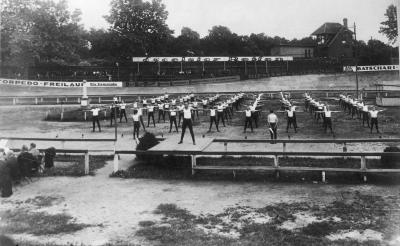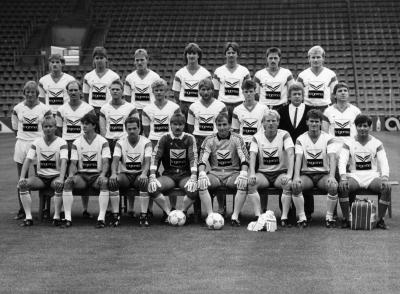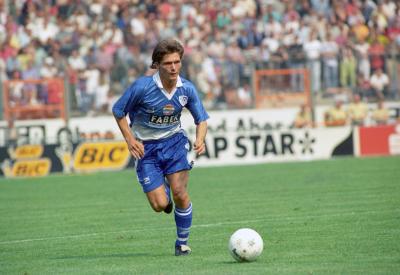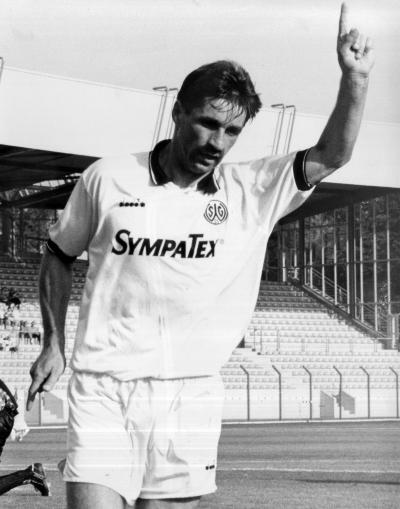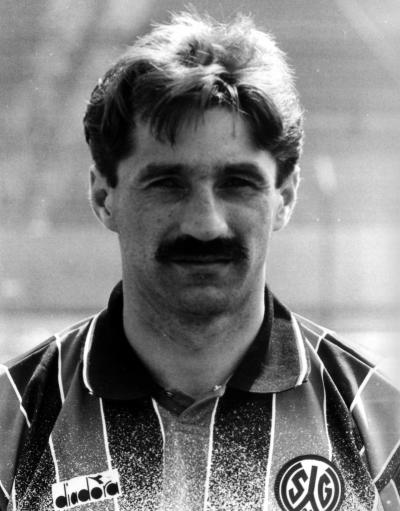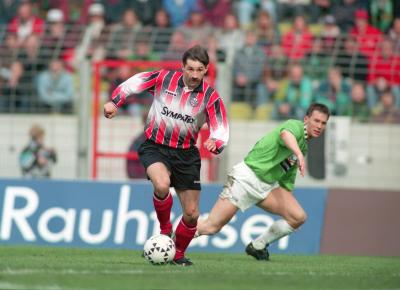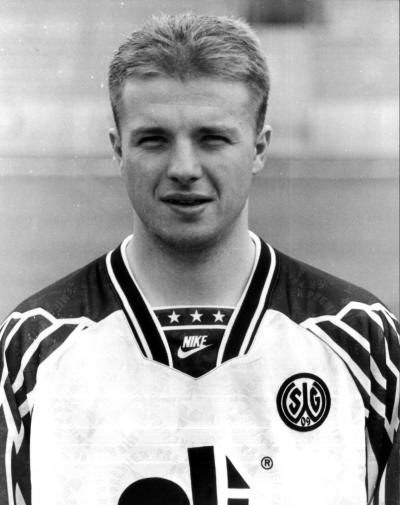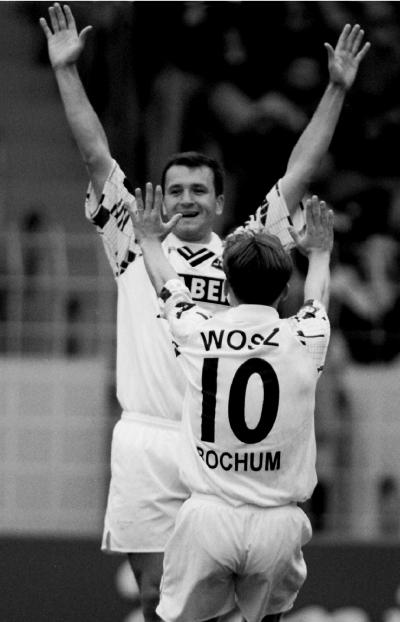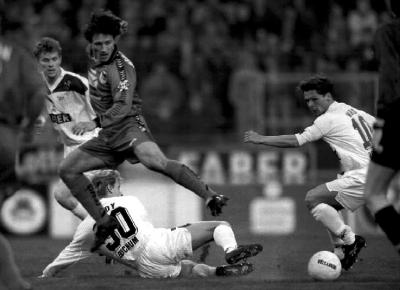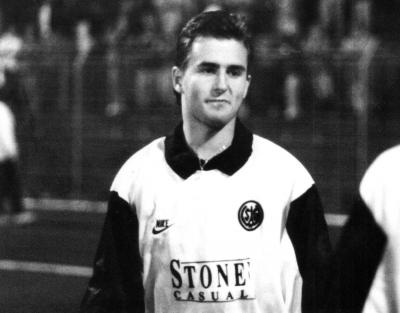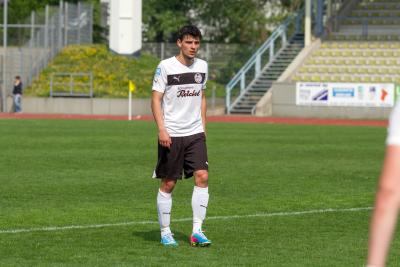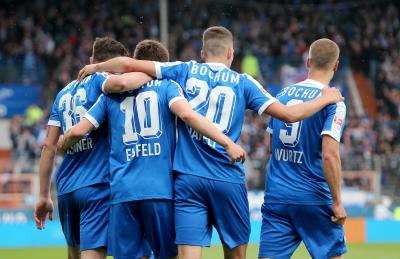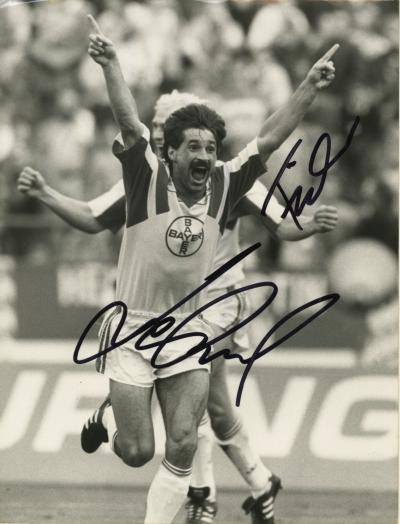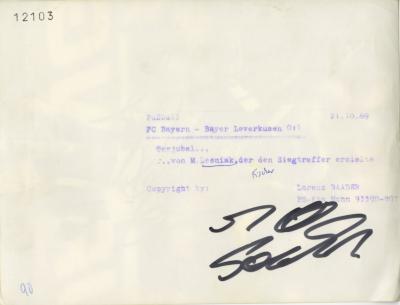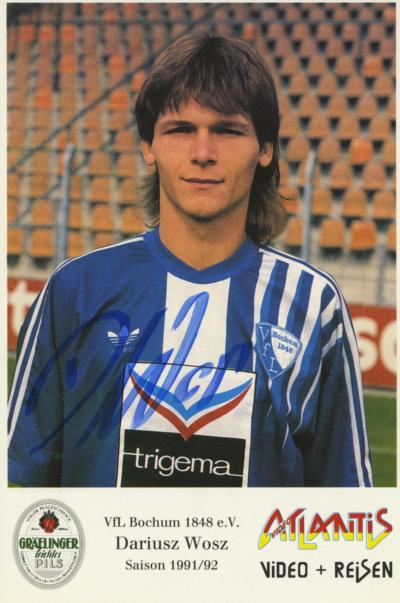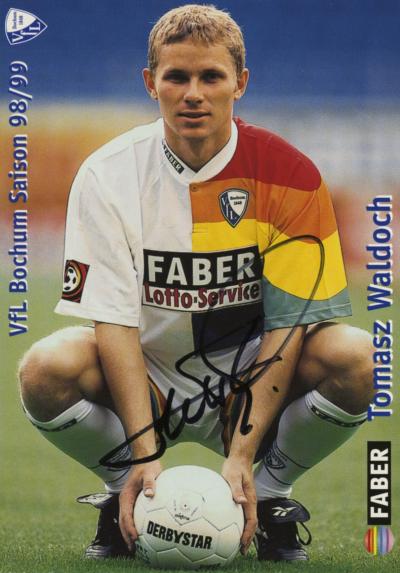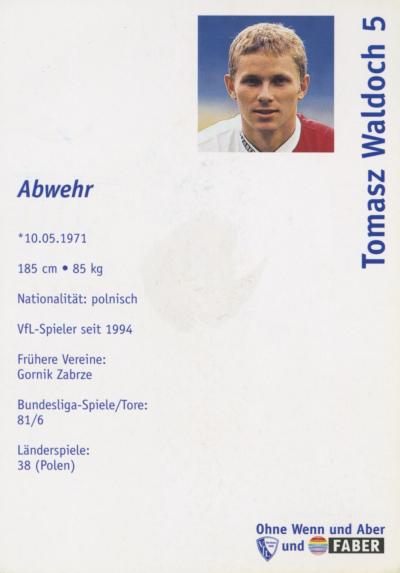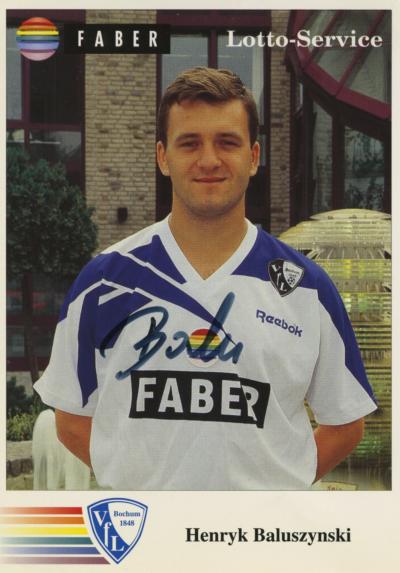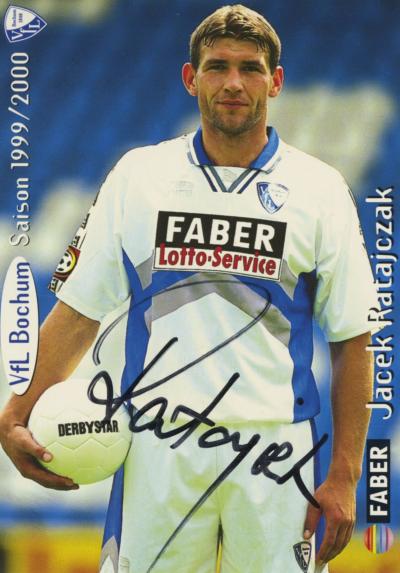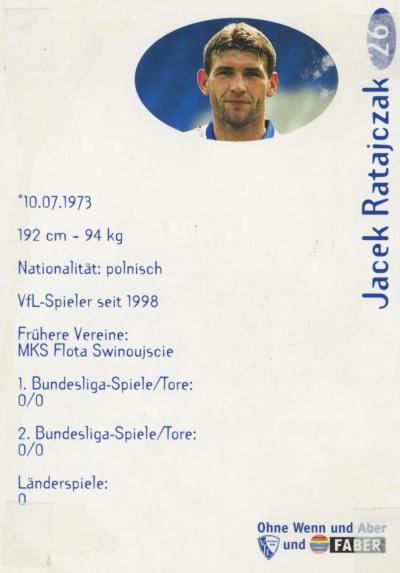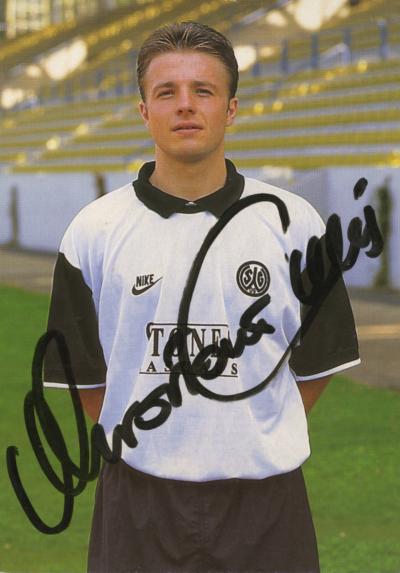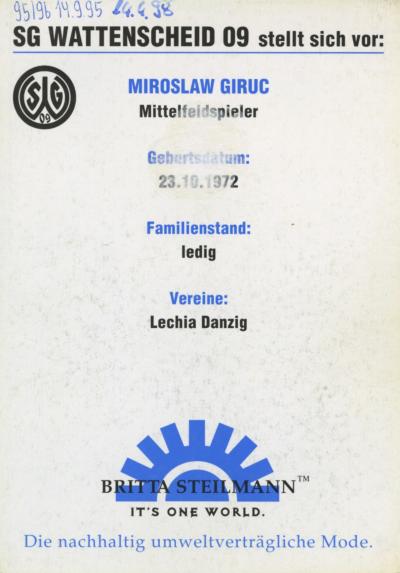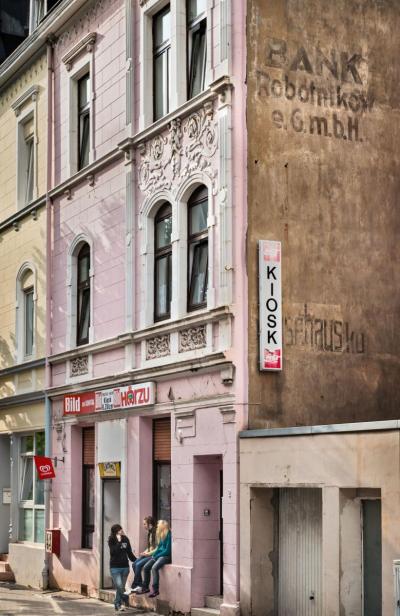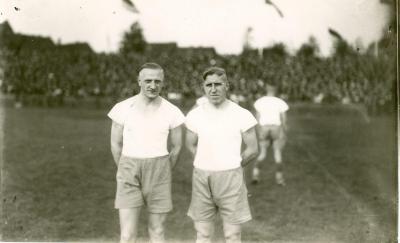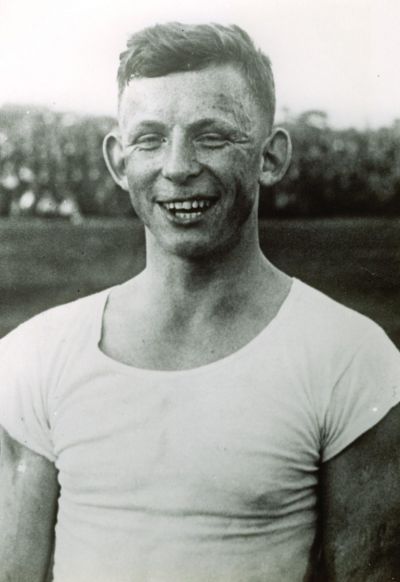From the Sokół club to Dariusz Wosz – Polish sport in Bochum

The German defeat in the First World War led to a complete change in the Polish community’s situation in the coalmining district. After the end of the war, the founding of a national Polish state in November 1918 changed the latitude of the Polish minority: As they began to migrate to Poland, Northern France and Belgium, their numbers halved up to 1929. And the Polish national alignment was no longer an appropriate political option. Sport, and of course football, found their way into the gymnastic organisation. In the 1920/21 season, football was already being played in 52 clubs. On 18 December 1921, the first final of the Sokół football championship was played in Recklinghausen; Castrop defeated the Bochum Sokół club Linden 3:2.[14] In January 1927, the Polish athletes succumbed to the political situation and deleted the words “Polish” and “Sokół” from the club names. The organisation was now operating under the name ”Association of gymnastics and sporting clubs from Westphalia and the Rhineland” and playing matches against German clubs.[15]
Integration into German society culminating in assimilation now appeared to many in the community a rational and sensible choice. Membership of the football club was a practical course of action, particularly in the coalmining district. In the 1937/38 championship round, there were 68 players with Polish root names in the teams in the Westphalian and Lower Rhine district leagues.[16] However, the collapse of civilisation resulting from the National Socialist rule soon meant the end of organised Polish sport and of Polish organisations throughout Germany. In the summer of 1939, their premises in Klosterstaße in Bochum were occupied and their assets confiscated[17]; significantly, the final liquidation was governed by an order from the “Ministerial Council for the Defence of the Reich” on 27 February 1940[18]. Officials, some of whom were from Bochum, were murdered during the war or died in the concentration camp.[19]
After the Second World War, players in the German national team who were from the Ruhr area and had Polish-sounding names were then part of football folklore and the anecdotal stories perpetuated by sports journalist, but without any real recollection of historical events. In a fragmented and unsystematic way, the history of segregation and integration, which are bywords for the historical reality of Polish sport in Bochum, became a chapter in a sugar-coated narrative that assumed that migrants and the resident population lived together without conflict during shared football matches. In this harmonised form, the history of the Polish minority also became part of the political discourse.[20]
A new phase of Polish players participating in football in Bochum and in football in the Ruhr area then heralded the belated introduction of professional football and the founding of the Bundesliga in the 1963/64 season. The lifting of the ban on women’s football in 1970 was also part of this urgently needed modernisation of German football. Since the 1950s, women in the coalmining district had organised clubs, matches and even a “national team”, none of which were “legal” in the eyes of the DFB. These women also included women from Masuria and Polish immigrant families, like Brunhilde Zawatzky from Dortmund and Lore Karlowski from Essen.[21] Now any male and any female who had talent could actually get involved. That is why, at the beginning of the 1970s, the proportion of workers among the elite footballers was as high as the proportion in society for the first time[22], the myth of “working-class sport” football was at least partially redeemed. Salaried football made this possible. At the same time, the German market began to attract foreign professionals, including Polish players. Since the end of the 1980s, the Polish state has issued permits for a career in the West, some athletes also defected to the West without these permits during overseas visits.
[14] Blecking, 1990, p. 195.
[15] Blecking, 1990, p. 197.
[16] cf. for this phase Blecking, Diethelm, From the “pit” to the professional league: Poles and Masurians in Ruhr area football (https://www.porta-polonica.de/en/atlas-of-remembrance-places/pit-professional-league-poles-and-masurians-ruhr-area-football, accessed on 26/12/2020)
[17] Schade, Wulf, Verkrüppelte Identität. Polnische und masurische Zuwanderung in der Bochumer Geschichtsschreibung, in: Bochumer Zeitpunkte 23 (2009), p. 25-51, here p. 34 (https://www.kortumgesellschaft.de/tl_files/kortumgesellschaft/content/download-ocr/zeitpunkte/Zeitpunkte-23-2009OCR.pdf, accessed on 27/12/2020).
[18] Blecking, 1990, p. 207, note 3.
[19] Schade, 2009, p. 33-34.
[20] Positive definitions of sport as a vehicle of integration with recourse to the “example” of the “Ruhr Poles” can be found when Helmut Schmidt was Chancellor, Wolfgang Schäuble was Minister of the Interior and Johannes Rau was President of the State of North Rhine-Westphalia. See Diethelm Blecking, “Sport and Immigration in Germany”, in: The International Journal of the History of Sport, Vol. 25(2008), p. 955-973, here p. 956 and p. 967, Note 10.
[21] cf. with further literature Blecking, Diethelm, Die Nummer 10 mit Migrationshintergrund. Fußball und Zuwanderung im Ruhrgebiet, in: Aus Politik und Zeitgeschichte 1-3(2019), p. 24-29, here p. 28-29 (https://www.bpb.de/apuz/283266/fussball-und-zuwanderung-im-ruhrgebiet?p=all, accessed on 29/12/2020).
[22] Eisenberg, Christiane, “Deutschland“, in: Eisenberg, Christiane (publ.), Fußball, soccer, calcio. Ein englischer Sport auf seinem Weg um die Welt, Munich 1997, p. 115-116.
